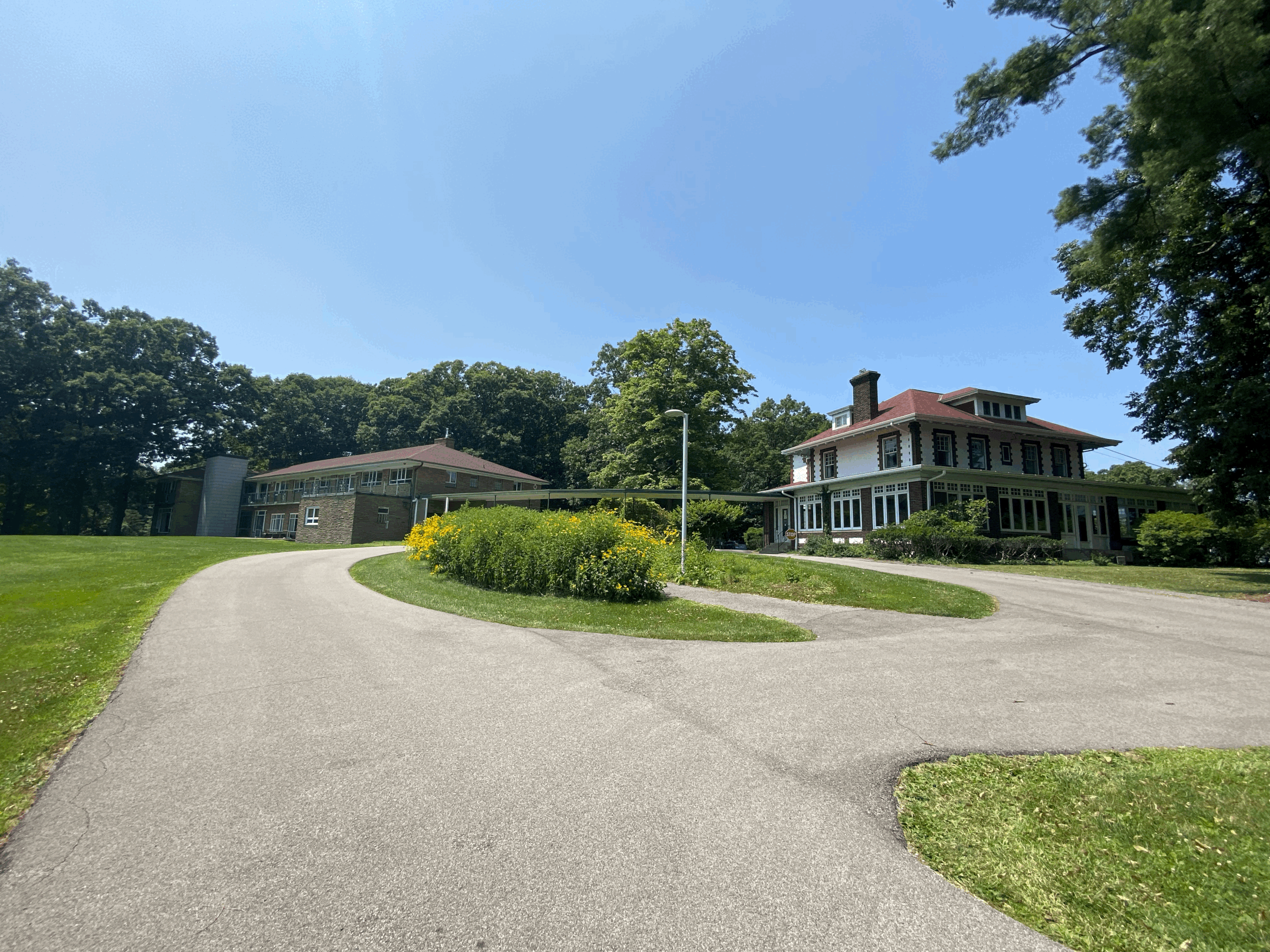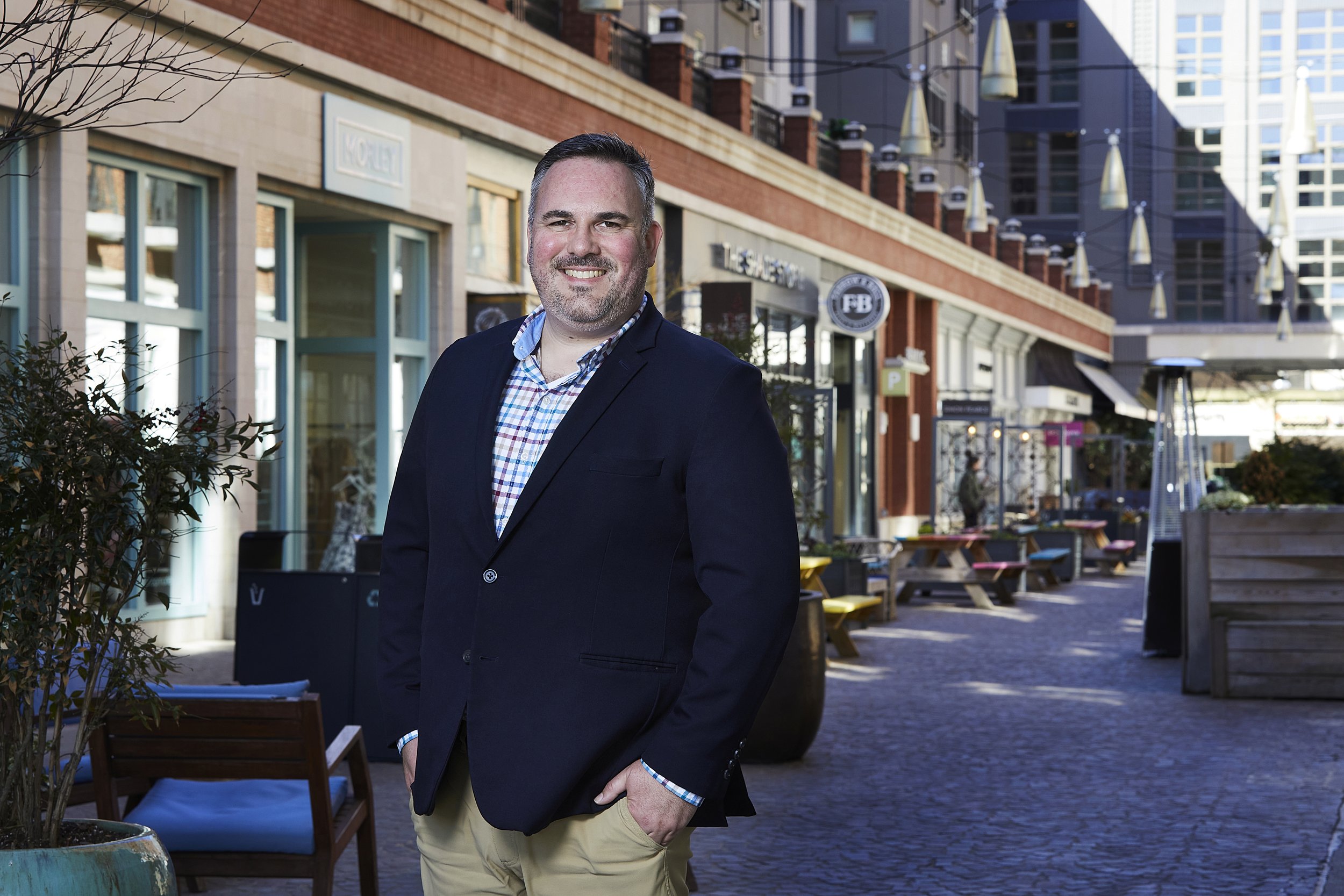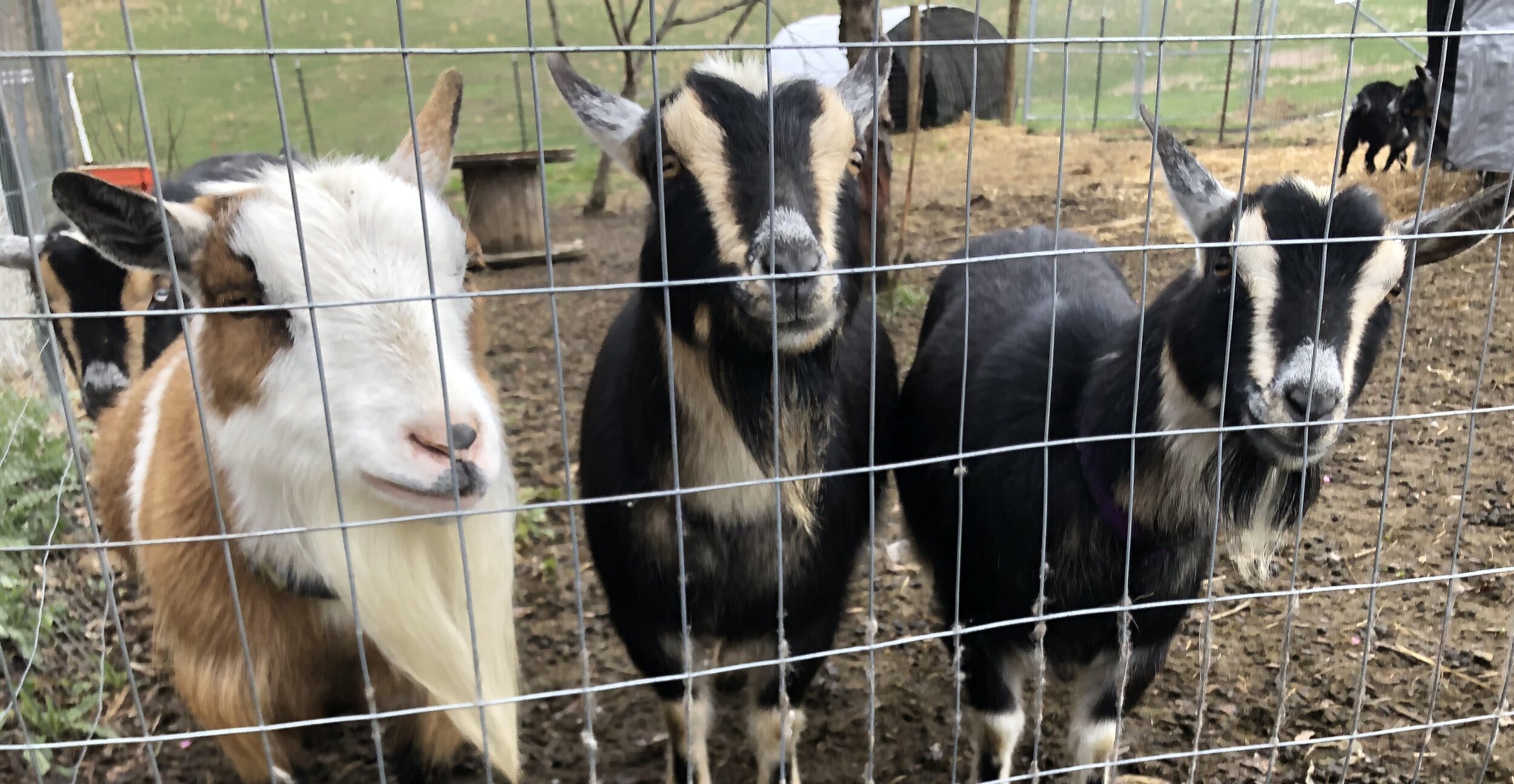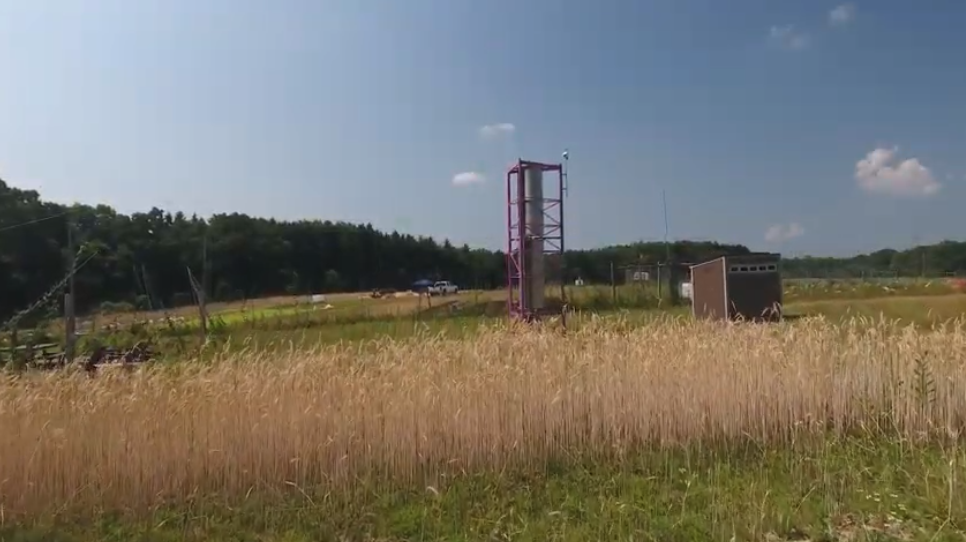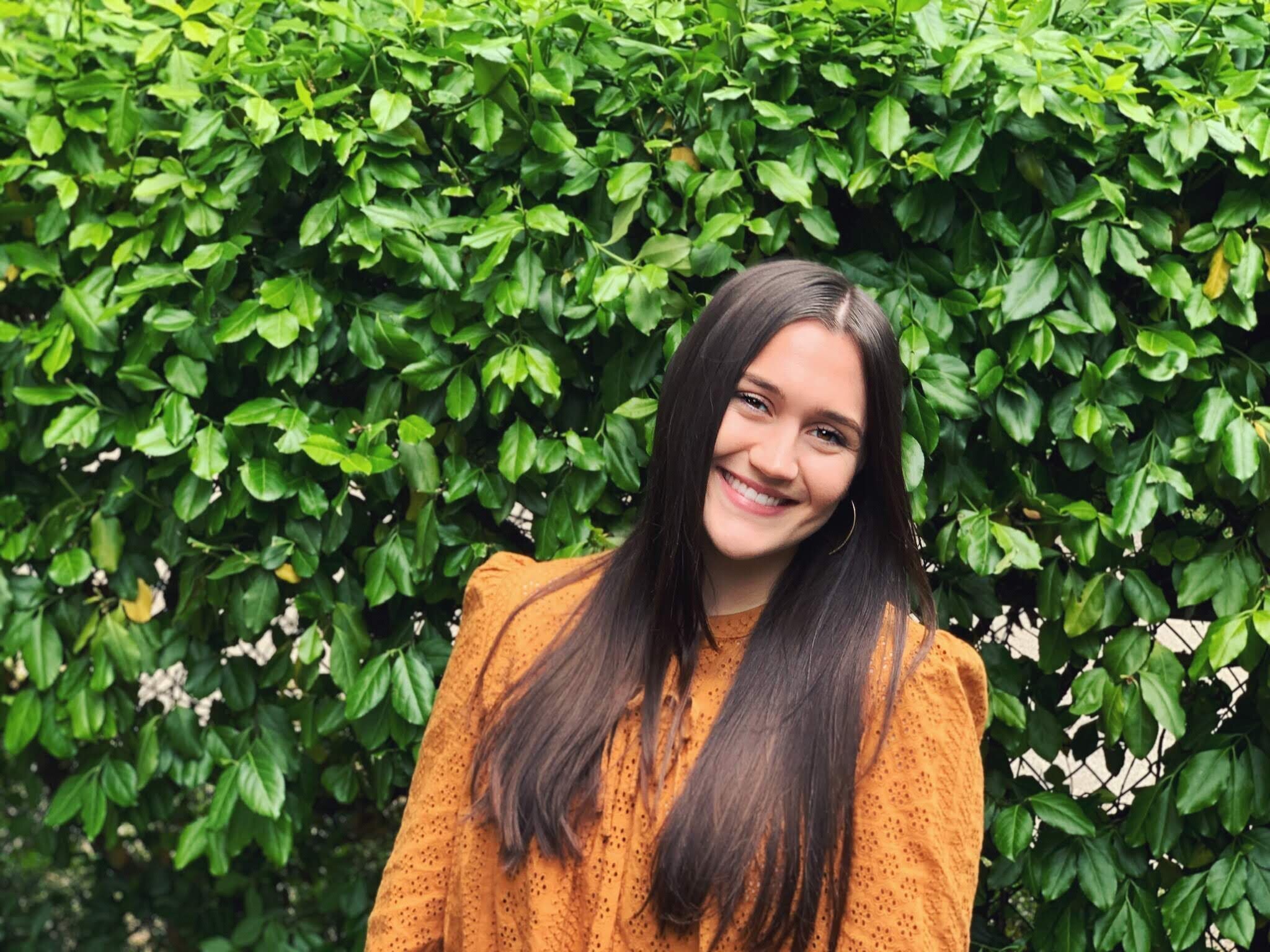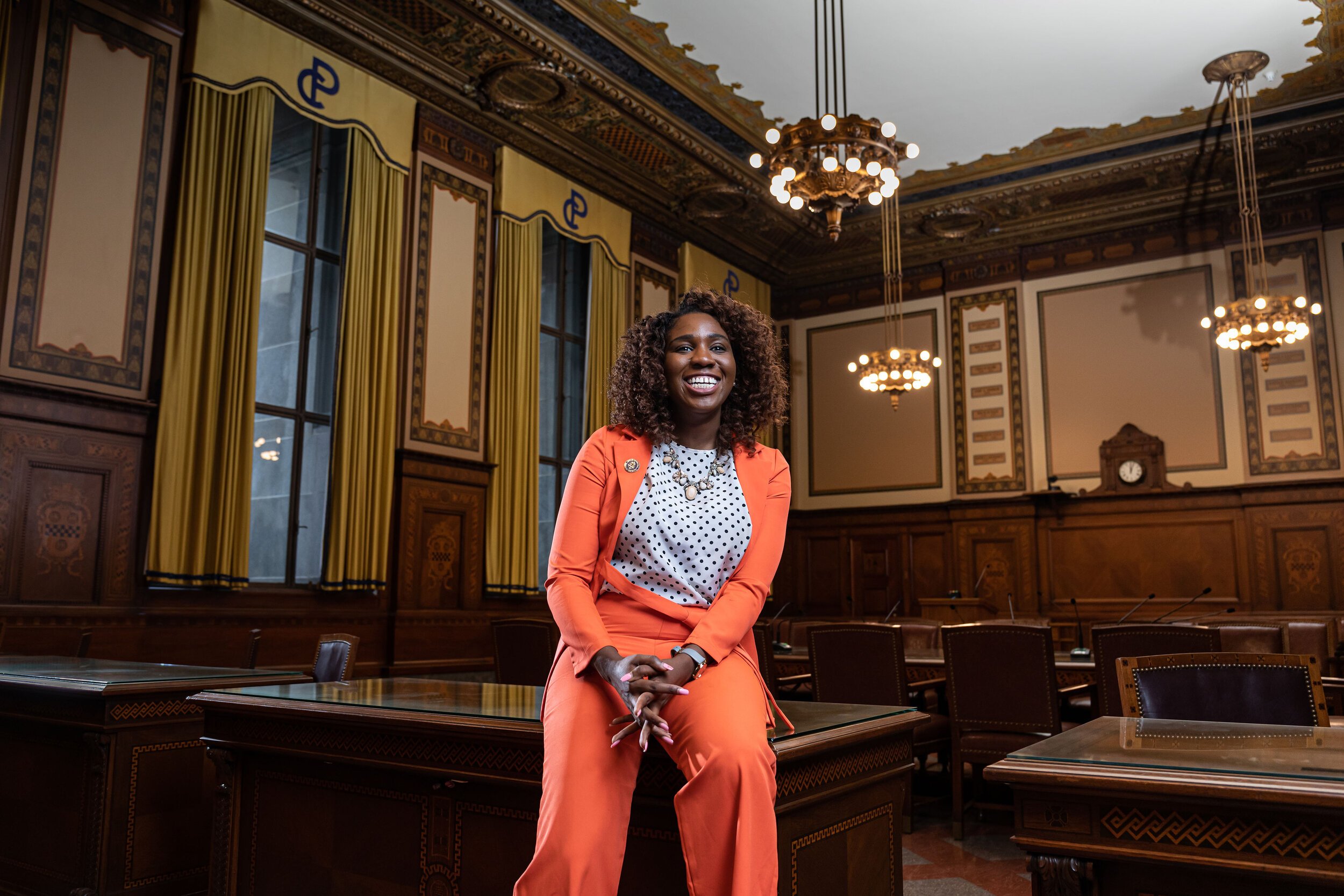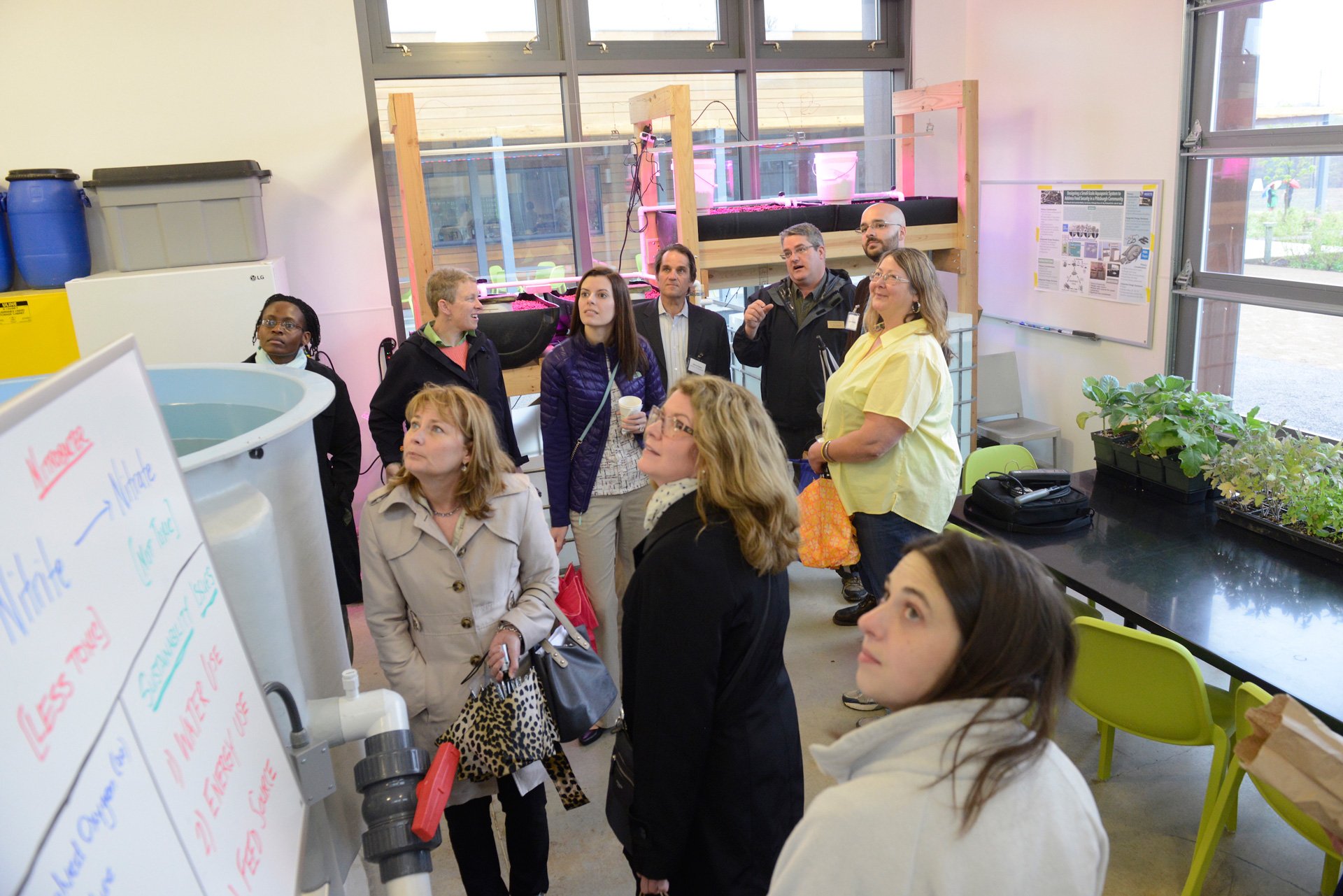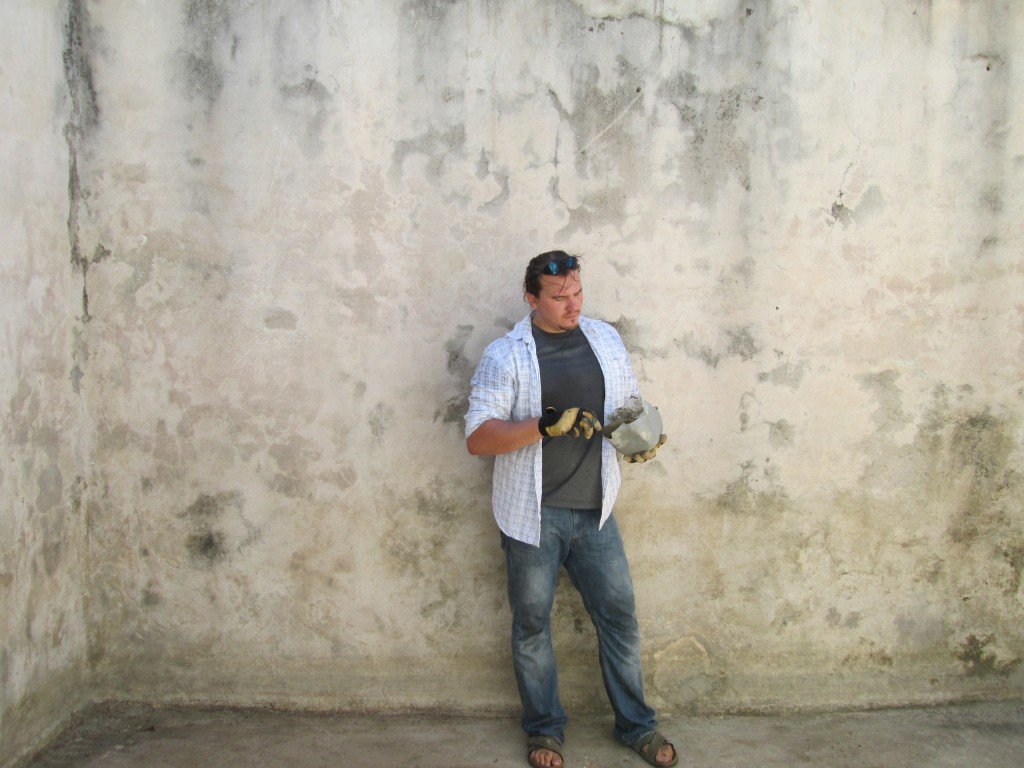Falk School Graduate Stories Collection
A designer of Eden Hall shows what makes the EBC core to the campus’ sustainability goals.
Students in the class stretch their writing muscles and see food’s connections to politics, religion, and their sense of self.
Three students give a glimpse of graduate life at Chatham.
For decades, working women vacationed in these frozen-in-time buildings north of Pittsburgh.
The Growing Growers program connects farmers who are women, people of color, and LGBTQ+, all of whom are underrepresented in agriculture.
Cory Van Horn, Master of Food Studies ’12, on how his time at Chatham prepared him for the delicious challenges of his position as Chief Strategy Officer for Visit Montgomery, Maryland.
ChathamU MAFS alum Toni Simpson knows the power of food to unite and inspire, bringing the skills she learned in our Food Studies program to her role as School Director and Lead Chef Instructor at Community Kitchen Pittsburgh
CRAFT at Chatham University presents Grainstorm, a day of learning all about the regional grainshed in Western Pennsylvania
Falk School of Sustainability students placed created a beautiful and sustainable rooftop garden experience at the David L. Lawrence Convention Center
Meet recent MSUS alumna and Mayor of Sharpsburg, Brittany Reno!
Join Kerrie O’Donnell, Doctor of Physical Therapy ’17, as she tours across the country as a traveling physical therapist for musical cast members.
In honor of HERstory month, which celebrates women of color from February 15 through March 15, Chatham’s Career Development and Alumni Relations teams collaborated to highlight four Chatham alumni who are excelling in their careers: Chindinma Ojini, Cynthia H. Jones, Genesis Caplan, and Teresa Smith.
Chatham’s Master of Food Studies Sustainable Fermentation course is full of beer brewing, yogurt-making, experiential learning and collaboration. Read on to see what the instructor and current students in the course find so great about this unique learning experience!
A space to gather, create, and collaborate, The Kitchen Lab at Eden Hall Campus provides students and community members with the equipment, facilities, and know-how they need to learn about food production in an environment that’s totally hands-on… and totally tasty, too. Watch the video to learn more about the Kitchen Lab!
Chatham University and the Oasis Project, the community and economic development division of Bible Center Church, have been partnered for a number of years on different collaborations. The latest of such projects center around our Falk School of Sustainability. Read on for an overview of some of the ways that the Oasis Project and Chatham University are working together for a brighter, healthier tomorrow.
Among Eden Hall Campus’ many sustainable and stupendous features is the Eden Hall Campus Community Bread Oven, where Chatham community members can gather together for culinary creations and lessons on the interplay between food systems, sustainability, and the people who power it all.
Mary Schrott, MSUS+MBA ’21 is passionate about sharing sustainability with others. Through her time spent in the Falk School of Sustainability, Mary was able to secure a job working for FedEx making sustainability accessible for their employees.
Morgan Block, MSUS ‘19 acts as the current sustainability project manager at the Housing Authority of the City of Pittsburgh. Learn how his search for equity in sustainability led him to Chatham’s Masters of Sustainability program and how his hands-on learning experiences, and coursework aid him in his current role.
Newly graduated, Nelson DiBiase MSUS + MBA ‘21 used his hands-on learning experiences to secure a position as a senior consultant in the department of energy sustainability infrastructure at Guidehouse, a consulting company. Join us as we catch up with Nelson and learn how his experiences at Eden Hall have translated to the workplace.
Since graduating Chatham with a Master of Food Studies in 2013, Katie Leone has run point on sustainability initiatives for a university, a community foundation, and now, Hertz, the global car rental corporation. We caught up with Katie to learn more about how this food studies grad found her way up the corporate ladder and how now, she is working to ensure that said ladder is more equitable and sustainable for all.
Though it may be slow to show itself this year, summer is on the way! If you’re looking to hone a new and wildly useful skillset during the warmer months, check out our handy guide to growing your own home (or community) garden, complete with common questions, conundrums, and tips from EHC Farm worker and Master of Food Studies student, Josie Martin.
The Pennsylvania Happy Traveler travel guide’s feature story showcases delicious self-guided culinary trails full of local products and expert craftsmanship. CRAFT employees and Master of Food Studies students Archish Kashikar MAFS ‘21 and Toni C. Simpson MAFS ‘21 lead the way in developing recipes for the trails, gaining valuable work experience and knowledge of local foods along the way.
Agroecology is the science of sustainable, equitable food systems. Chatham’s agroecology garden puts this science into action with practices including recycling nutrients as much as possible, taking advantage of natural relationships in the production of food, and building healthy soil to mitigate the need for pesticides.
In August, Lou Leonard, JD, became the new dean of the Falk School of Sustainability & Environment. We sat down with him to get to know him a bit.
Not only can goats make yoga classes more exciting, but they are also voracious eaters with the ability to rehabilitate damaged ecosystems. At Eden Hall Campus, nine glorious grazing goats are used to remove invasive plants in an effort to bring native vegetation back to the campus.
Food isn’t just fuel— it can be a gateway into complex systems of access, agriculture, belief, storytelling, and revolution. CRAFT at Chatham University and the student Eden Hall Fellows have teamed up to discuss all of this and more in their two-day virtual conference “Food in Uncertain Times.”
Master of Food Studies student Quayla Allen is both an undergraduate alumna of Chatham,and an incoming graduate student and recipient of the Edna Lewis Foundation Scholarship. Her work centers on uplifting Black women and addressing issues of equity within the food and beverage world.
MAFS alum and Pittsburgh bartender, Drew Cranisky is helping alumni hone their at-home bartending skills this Saturday as part of our Virtual Reunion Weekend. We caught up with Drew to learn more about his experience of the restaurant industry during the pandemic and some of the virtual silver linings he has found.
Eden Hall Campus is now home to a microgrid, a contained energy grid that can use locally-generated energy to power its surroundings. Nelson DiBiase, MSUS + MBA ‘21 played a crucial role in setting up the microgrid for Elsalma Field, which will power the outdoor classroom, a future hoop house, and more.
Clare Clark is a traveler, a hiker, a cook, a kayaker, a cat mom, and a painter. But above all, she is a lover of food and all that it encompasses. Learn more about the work she is doing in sustainability, her love of produce, and her plans for the future in this for-students, by-students feature.
ChathamU grad student Mary Schrott already had a career in sustainability before getting her master’s. So why did she decide to pursue her MSUS + MBA with us? “Not a lot of universities offer both business and sustainability graduate degrees. I find the combination extremely valuable.” Learn more about Mary in this student spotlight.
Master of Arts in Food Studies students at Chatham University take a class called "New Product Development" where they apply the methodologies and practices of product development to create something tangible… and tasty. In this video, you'll see how MAFS students helped develop Afterglow, a ginger-infused whiskey distributed by local Pittsburgh distillery Wigle Whiskey.
Falk School faculty offer a variety of tools sampled from some of the world’s leading sustainability-minded organizations in a new Field Guide for Future Sustainability Leaders.
“One of the things that Downtown Pittsburgh struggles with is that people don’t think of it as a neighborhood—but it is,” says alumna Caitlin Fadgen, Master of Sustainability + MBA ’17. That’s what she aims to change in her work with Pittsburgh Downtown Partnership (PDP).
Alumna Feyisola Akintola explains that her Master of Sustainability + MBA Dual Degree taught her to push boundaries and make a difference in her role as Special Initiatives Manager for Mayor Bill Peduto at the City of Pittsburgh.
That glass of milk is nutritious and refreshing, but how sustainable is it? “People want to purchase items that they know are not harming our planet, and that they know come from a good place,” says Jim Marburger, president of family-run Marburger Farm Dairy.
Joshua Lewis, Conservation Coordinator at French Creek Valley Conservancy works to protect 2,200 acres of environmentally significant lands. Read more about how a Master of Sustainability led him to land conservation.
The Agroecology Garden at Eden Hall Campus doesn’t just serve as a test-ground for projects and passions. It fosters community, connects old ways with new methods, and empowers students to cultivate not only greenery but a sense of identity.
Among the intellectually curious, there are two kinds of people: there are those who are interested in how things work, and then there’s Sophie Slesinger.
Thanks to generous grant funding by Bank of America, Falk School of Sustainability and Environment Assistant Professor Iris Grossmann, Ph.D. has recruited a team of students and faculty to work on a multi-year community-based sustainability project in Homewood
According to Justin Mason, MSUS ‘19, one solution to the problem of keeping utilities affordable could be solar power for low-to-moderate income families—the focus of his master’s thesis with advisor Assistant Professor of Sustainable Technology Iris Grossmann, PhD.
Through our partnership with La Prima Espresso Company, Chatham’s Master of Food Studies students get first-hand insight into the way a local company sources, sells, and markets its product.
Associate Professor and Director of the Master of Arts in Food Studies (MAFS) program Alice Julier did not write the book on food studies—she edited it.
Eden Hall Campus has a history that we at Chatham celebrate: Sebastian Mueller, an immigrant from Germany, bought Eden Hall Farm and used it (in part) as a retreat for women employees. But that’s not the whole story.
Like many, Hal B. Klein set out to become an actor. Like fewer, he did. After earning a BA in theatre in California, he headed to New York (to work) and to London (to pursue a post-graduate certificate in classical acting). Roles followed in a few independent films, in commercials, and at Shakespeare festivals around the country.
While breaking bread, Shauna is also breaking the mold. What comes out of the community oven in Braddock is extraordinary. But what comes out of her community spirit is changing people’s lives.
Food Access (FST509), taught by Mim Seidel, MS, RD, LDN, has two components: a general exploration of the contexts in which hunger and food insecurity develop, and a directed exploration of food access in Pittsburgh. This course is enriched through interactions with many Pittsburgh-based anti-hunger organizations.
Because as hands-on as this class is, Frey equips her students with the theoretical knowledge and collaborative spirit that effectively makes them artisans—even if just for the semester.
“Chatham is a big enough program to obtain resources, but it’s small enough to build really close relationships,” Snow says. This allowed Snow to truly understand the world he’d be working and making a difference in.
Leland plans to grow the project each year, and to offer gardening workshops to teach children that with hard work and determination, even the smallest seed can grow into to something larger than life.
Aquaculture—the farming of marine organisms, including fish, shellfish, turtles, and plants—is responsible for more than half of all seafood eaten worldwide,[1] and getting bigger. Falk School Aquatic Lab Director Roy Weitzell, PhD is ready.
Students have been working since the fall to develop—from ideation to market—a ginger whiskey that they plan to release around Valentine’s Day 2016.
In both non-profits, Hermalin noted some degree of reluctance to talk about the projects in terms of class and race; for example, a tendency to refer to “high crime” areas, which, she points out, “puts them (the speakers) in the position or reinforcing negative stereotypes even as they try to advocate for the community.”
Zig Osiecki thought that his Fellowship would be spent creating a more sustainable garden and a plan for its year-round use. He was wrong.




